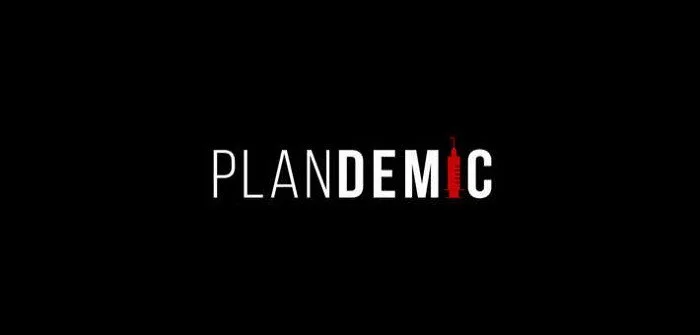Plandemic and the Information Virus
May 19 2020
A week or so ago, I saw something strange. On Facebook, someone was warning people not to see a film they had not seen, by referring to the post of someone telling people not to see a film they had also not seen, by referring to the opinions of someone who thankfully had seen the film, and was apparently qualified to speak on such issues.
This is not normal behaviour, but of course these are not normal times. And as a result, most people, upon seeing the post, probably would have seen this behaviour as normal.
In the film in question there is no gratuitous and/or provocative violence or sex: grounds for censorship for some, even if these same few seem largely resigned to such a reality being in place. It was not, to take those factors to their extremes, a snuff film, which I would whole heartedly agree should be actively kept away from public eyes.
The film simply presented information in the form of people’s opinions: albeit information that is controversial and contested from people whose opinions are controversial and divisive. And it is now information — this particular type of information — which seems to have people so scared that it is being treated with the same level of danger and contagiousness as the virus that the film was based on.
Yes, as you had probably already guessed, if for no other reason than the title of this post, the film was Plandemic.
When I saw the Facebook post, I had already seen the film: actually just a glorified interview with Dr. Judy Mikovits that forms part of a yet to be released longer film. If I hadn’t, I would have probably dropped everything bar my decaf Bonsoy cap to watch it, because that’s the type of person I am.
Mainly, because I have become very familiar with the type of thinking displayed in that Facebook post. After a period of time engaging with said thinking, I am now predisposed to rebel against it. It’s a very tempting mindset, I will readily admit. It is good for the ego, because it establishes your intellect above the people who are perpetuating their objectively wrong opinions. It is also a type of thinking that reduces the world to a comfortable black and white, which is something we all seek just for a respite from the exhaustion that arises from having to question everything.
Unfortunately, it is also thinking that can only be described as cult-like: where people who hold opinions that challenge an accepted narrative are not only wrong but must be proactively shunned. They become the enemy by default: because of a specific set of views that they hold, without any regard given to who they actually are, what their story is and how good or bad of a person they may actually be.
I simply do not believe that this type of thinking is healthy. I don’t believe this is how the world works. I don’t believe this is how humanity works: that objectively false information can be presented in such a deceptive and deceitful way that it has the power to overrule the capacity for discernment of such a significant proportion of the population that it requires censorship.
Or, if humanity has worked that way, I choose not to accept it as a reality anymore.
But let’s not leave that fairly large assumption that the information is in fact objectively false. Is it? Is this even a reasonable question to be asking anymore?
My god, how much I hate the word ‘debunk’, regardless of the side that uses it. It reeks of arrogance. It is not enough these days to challenge a claim, or dispute it, or to question it, or to hold it to account. We have to debunk it, destroy it, strip it and the person who holds it of any type of redeeming qualities, leaving ourselves and our side as the unopposed intellectual and moral victor.
Have you ever taken a Snopes fact checking article as an authoritative opinion on a subject? Here’s a relatively neutral article that suggests you probably shouldn’t.
Why should we trust Snopes, or FactCheck.org, or any of these other appointed bastions of objective truth more than the people who made Plandemic? Perhaps the better question is: why should we trust them inherently, without actually finding out who these organisations are comprised of, where they come from and who supports them? Because this is part of the conditioning that is deliberately employed in the war on information: that we accept without reason a particular source more than others.
I’ve watched the interview Mikovits did as part of Plandemic several times now, but I’ve also watched several other interviews she has done with alternative health outlets (one of which is publicly available here, pending anymore YouTube tantrums).
These other interviews are much better sources of information than the edited and dramatised style of Plandemic, which includes the not at all ominous phrases ‘…the fate of nations hang in the balance’ and ‘…places all human life in danger’ within its first minute. There is an unavoidable sense that this interview was deliberate designed to be provocative as well as informative, so as to garner the attention it did — something basically admitted by its creator and narrator in this short interview. This fact becomes frustrating when watching it in the hope of being presented simply with information, even if it could be argued from a marketing perspective as necessary to get its core message out.
One thing that no-one should doubt is that Dr. Mikovits is smart. This is self-evident given she reached her original position as part of a study with such apparently significant findings for the health industry, and more so when you see her speak. As such, things essentially come down to her character, in whether she is being truthful in the information she is presenting, or whether she is a liar and opportunistic seeking to restore her rightfully tattered public image and sell a book in the process.
Some things she is rightly pulled up on. She links flu vaccines to higher levels of COVID-19, when the study she is referring to actually finds a link to higher rates of Coronaviruses as a whole. She distorts a story about funding from the US National Institutes of Health to a lab in Wuhan that has been speculated as being the origin of the virus. That she misspeaks on these two issues is also frustrating, given there is a potential story at the heart of both issues that may now be outright dismissed by many: the real phenomenon of virus interference, and the funding by America of a lab in China that their Government has openly admitted does work on bioweapons.
But these slip-ups do not automatically discredit the whole film and its overall narrative, which is helped by but does not rely on these two issues alone.
Some of the claims she makes simply cannot be ‘debunked’, because she is really the only one in the position to make them. We don’t know what Anthony Fauci really said and did when presented with that draft paper from that HIV study. We don’t know if that evidence was planted in her home, because if it was planted, then of course the people who planted it will deny it. Thus, for people who find these claims fundamentally unpalatable, the only way for them to be undermined is to undermine her character.
What is also clear from the interview, and which makes her a lightning rod for both support and opposition, is that the Doctor is well and truly down the rabbit hole. She doesn’t just speak on the virus. She hits on the hot topics of inflated death rates, bioweapons, hydroxychloroquine, mandatory vaccines. She takes direct and specific shots at big names like Fauci and Bill Gates.
Essentially, she weaves her claims coherently and convincingly (again, she is clearly highly intelligent) into a much broader conspiratorial narrative, aided by the splicing in of the views of other notable medical specialists who have been speaking out against the mainstream narrative. It is the convincingness of this overall counter-narrative that triggered its initial viral sharing and subsequent fierce pushback by the establishment.
And, sorry to be the bearer of bad news: this counter-narrative is not going to go away, regardless of whether you choose to engage with it or ignore.
COVID-19 has changed a lot of things. It has changed the nature of society and the economy for the worse, even with the faint silver lining of the positive changes for the environment.
It has also changed the way we think. The virus has infected our minds. We can see this in the Plandemic debacle, where our fear of a virus has morphed into an almost identical fear of information. We are quarantining our minds inside a house of comfortable thoughts and opinions, just like we are quarantining ourselves in real life. Even if you do think the extent of this physical quarantine is necessary, which I don’t personally but understand people who do, it doesn’t by extension justify the measures we are taking to stop the spread of contagious information.
This way of thinking is not healthy. Our brains needs to get outside these walls — get some fresh air and sunlight, if you will — even if it comes with a risk.
If you haven’t already, you can watch Plandemic at its official website, given any Youtube link is unlikely to last more than a few days. Even better, you can watch this subsequent extended interview. Do it with your brain and BS detector turned on. You can then read the various and easy to find fact checking articles yourself, and come to your own conclusions.
You might find yourself stuck in the grey area between fact and fiction. But that’s ok, because it is better than a life lived in mental quarantine, fearful of this information virus that is here to stay.

